Updated
Archaeological Institute of America
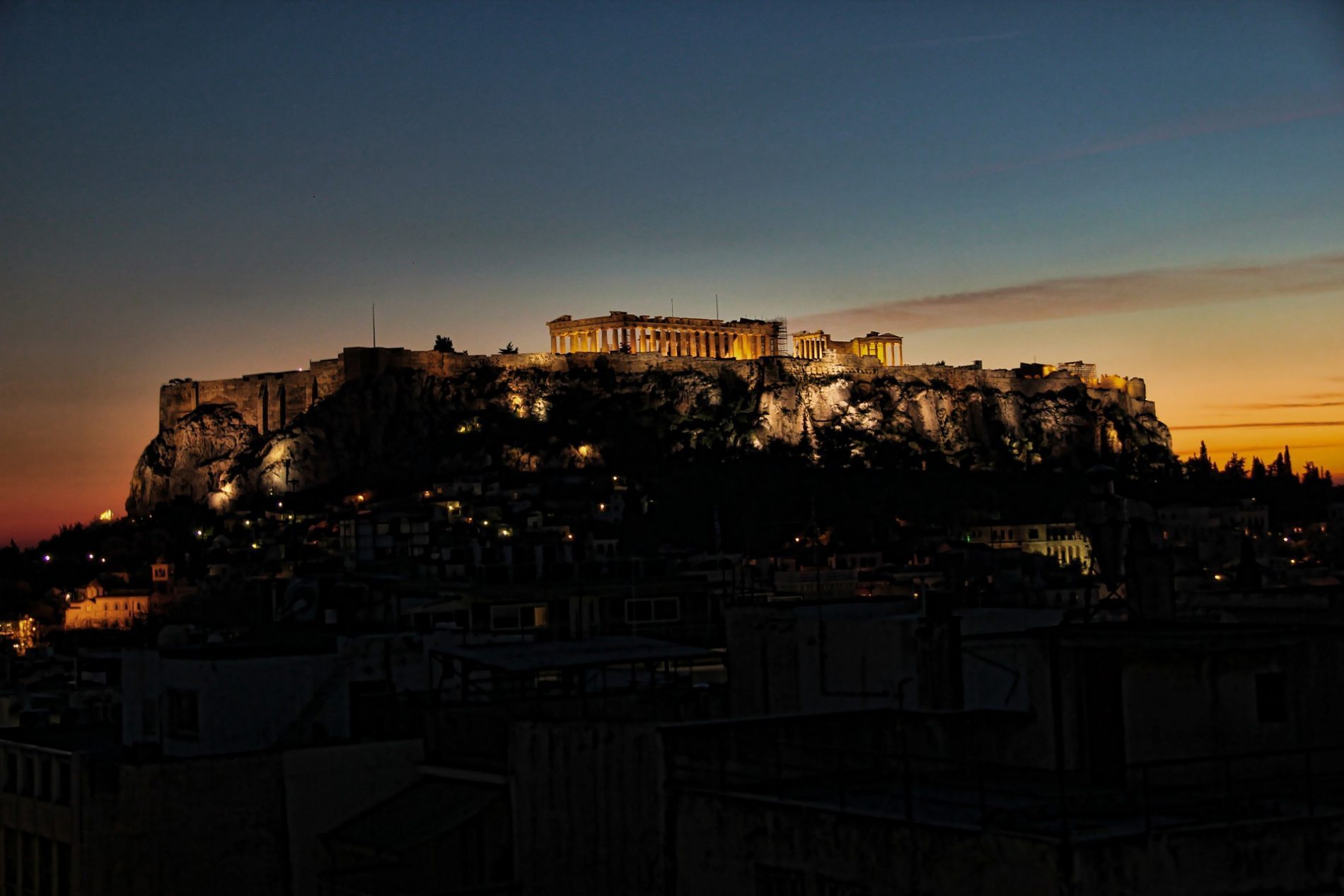
Deadline: December 15, 2024
Announced: By March 1
Amount: Two Fellowships of $8,500 each will be awarded in 2024 (one annual award subsequently)
Purpose: To support studies undertaken at the American School of Classical Studies at Athens, Greece for no more than a year.
Requirements:
The AIA welcomes applicants of all backgrounds and is committed to equal opportunity for all. Under no circumstances will the AIA discriminate against qualified individuals on the basis of race, color, religious creed, retaliation, national origin, ancestry, sexual orientation, gender, disability, mental illness, genetics, marital status, age, veteran status, or any other basis prohibited under applicable law.
As part of the Archaeological Institute of America’s ongoing commitment to fieldwork and families, reasonable line items for the care of dependent and elderly family members are allowable expenses for AIA grants, fellowships, and scholarships.
Please note that all application materials (including references and transcripts) must be received at the AIA by the Nov 1 deadline. Awarding of each Colburn Fellowship is contingent upon the applicant’s acceptance by the ASCSA.
View the Fellowship Requirements and Application Guidelines.

2024
University of Montreal
One of this year’s AIA Anna C. and Oliver C. Colburn Fellowship winners, Justine Lefebvre (a PhD candidate at the University of Montreal), will study bronze production from the Archaic and Classical periods. As part of her fellowship, she will travel to the American School of Classical Studies in Athens, Greece, as well as the Archaeological Museum of Amphipolis to study a sample of the one thousand artifacts related to metal production that have been unearthed at the site of Argilos since 1992.
Lefebvre will employ mass spectrometry and metallographic analysis to look at how these bronze artifacts were made, what their chemical composition can reveal about the origins of the metals, what metal-working methods were used to treat them, and how these objects show how bronze production changed over time. With this information Lefebvre will answer questions about how the ancient Greeks worked with bronze, the history of the technical knowledge of bronze production was passed along, and how these materials and objects were traded thousands of years ago. With her research, Lefebvre hopes to contribute a more detailed and nuanced understanding of bronze production during these periods of Ancient Greek history.
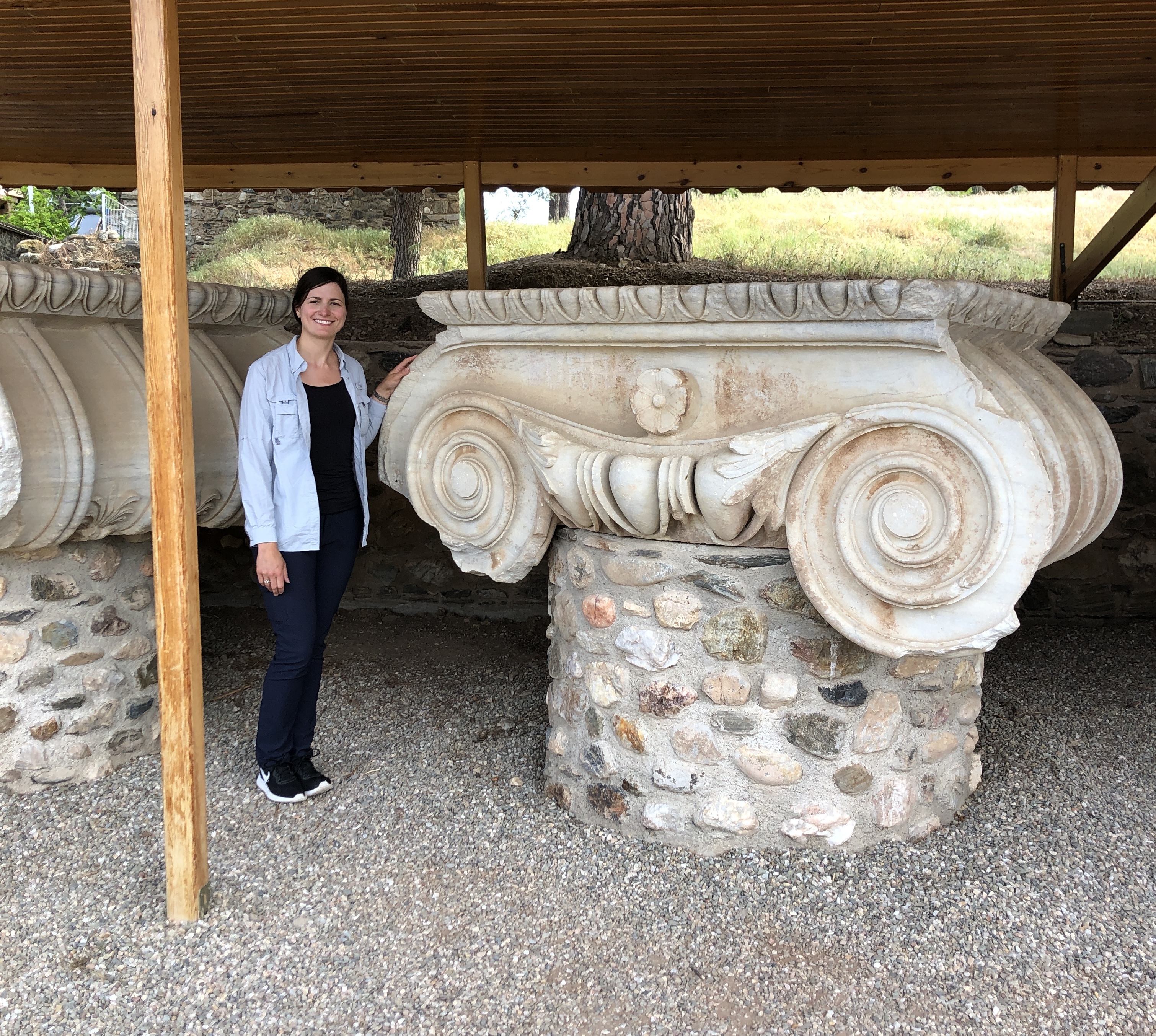
2024
Institute of Fine Arts, New York University
AIA 2024 Colburn Fellow, Rebecca A. Salem (PhD candidate, Institute of Fine Arts, New York University), will use the American School for Classical Studies in Athens as her home base later this year as she conducts research for her PhD dissertation, “The Temporality of Greek Temples: Diachronic Building in the Archaic and Classical Periods.” Her fellowship project will examine the ancient architecture at the Temple of Hera at Samos, not in its idealized form as a finished work of architecture, but rather as a work in progress. Through the lens of temporality, studying the temple as a process of construction and reconstruction over time, she will examine the significance of the temple’s architectural modifications in the context of social, technological, and environmental change at Samos. She hopes to demonstrate the usefulness of this approach to architecture as evolving and incomplete and its applicability to other case studies. As part of her fellowship, Rebecca will travel to Samos and the museums that hold the temple’s architectural remains.
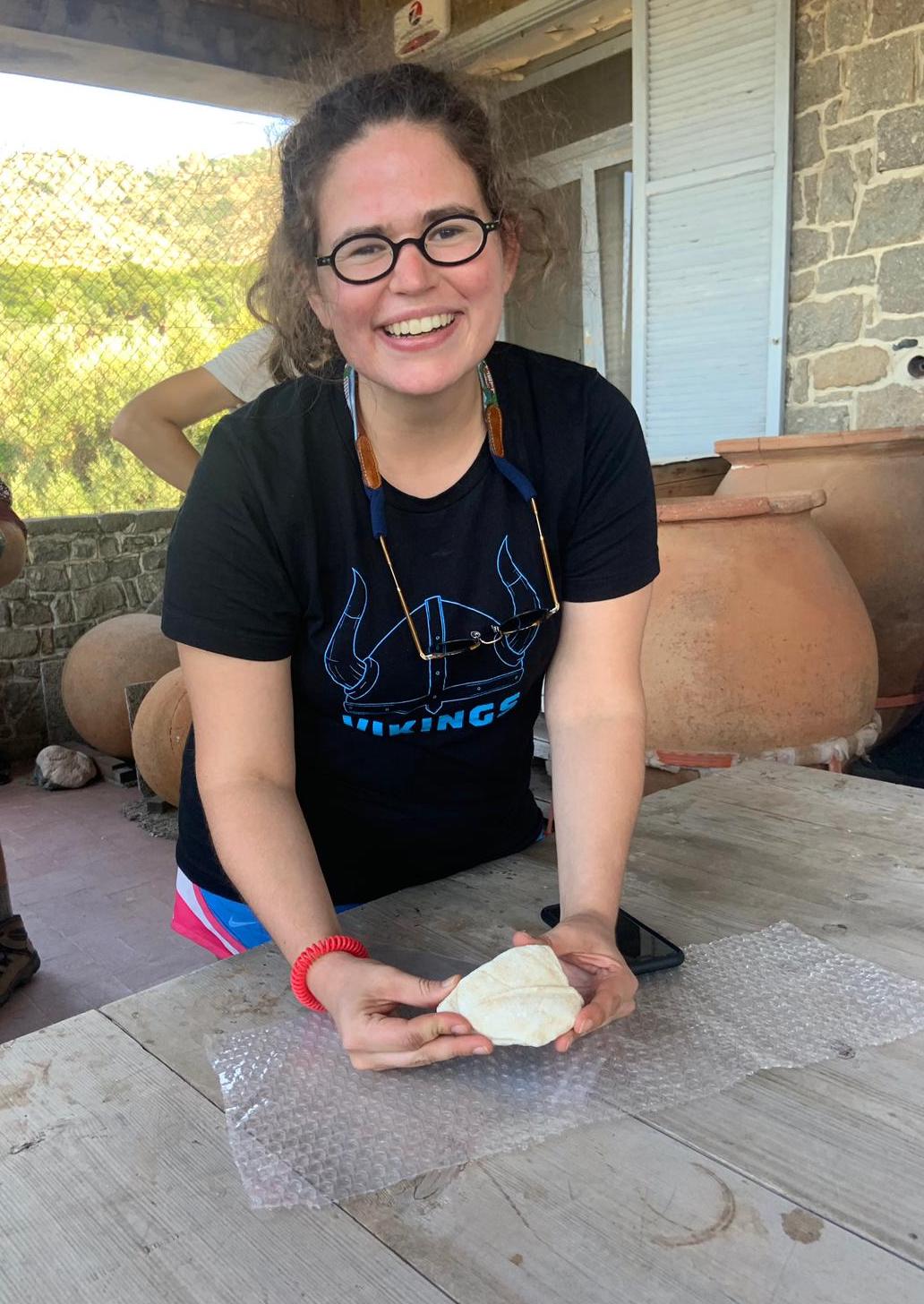
2022
Emory University
Ellen Archie will be using the Colburn Fellowship to support her dissertation work on “Entangling Dionysos: Dionysos in the northern Greek and Macedonian Private Kosmos, 4th-2nd centuries BCE”. Through examining objects and motifs contextually and experientially across spaces, Ellen aims to argue that Dionysiac imagery of abundance and conviviality decorated the bodies and shaped the space of the living in times of celebration, offered a touchstone between life and death in times of mourning, provided comfort in the knowledge that the deceased would be enveloped in a pleasant environment, recalling the relationships made in life.
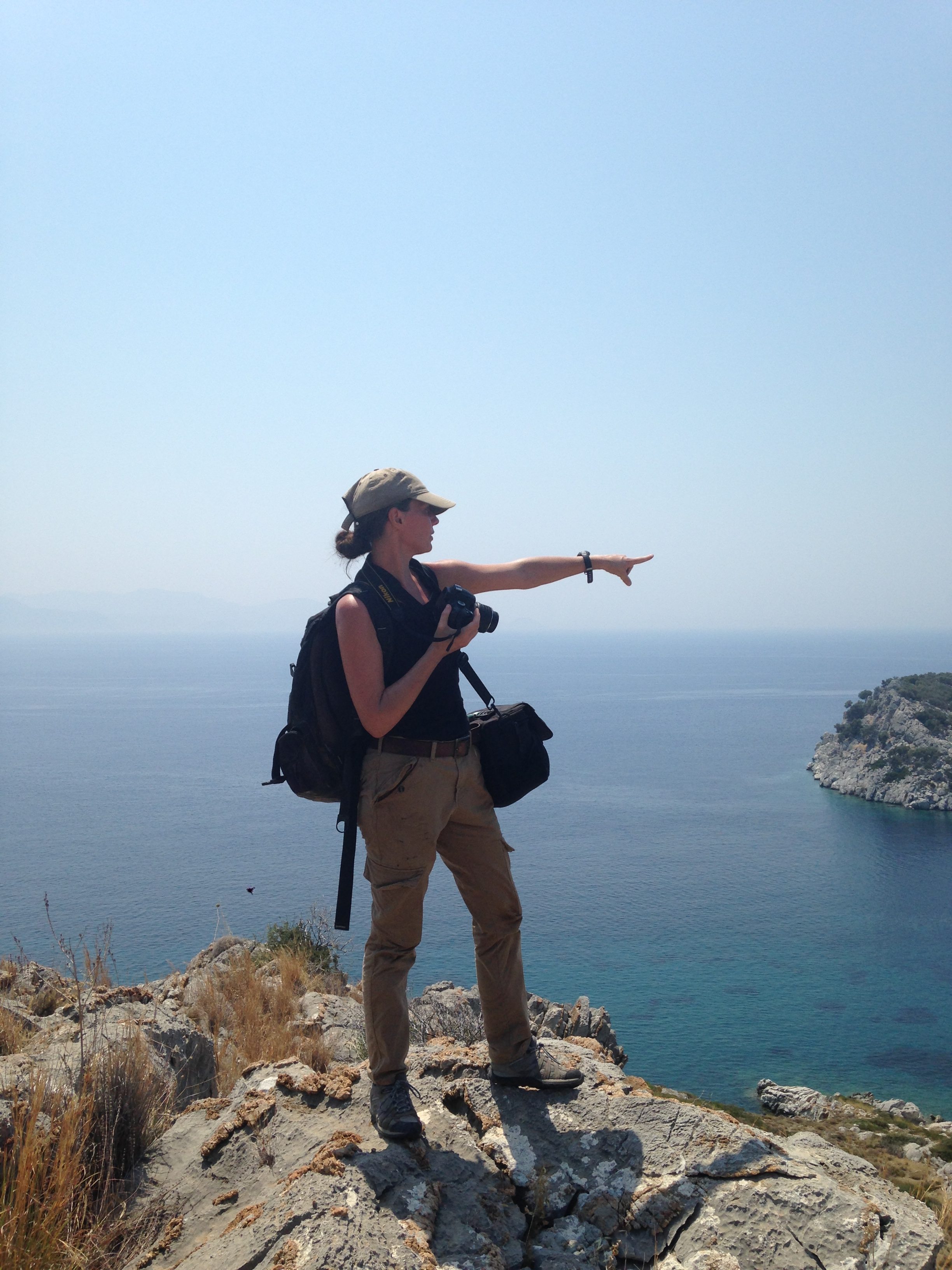
2022
Bishop's University
Lana Radloff will be using the Colburn Fellowship to support her research project work on “FemiNetworX: Mapping Female Maritime Mobility Networks”. Her project aims to reconstruct the embodied, lived experience of female maritime mobility networks in ancient Greece, by applying an explicitly feminist and gendered theoretical and methodological approach. Using Miletus and Rhodes in the southeast Aegean (400-31 BCE) as case studies to explore Eastern Mediterranean networks, she investigates the role of women as drivers in the creation and maintenance of maritime networks.
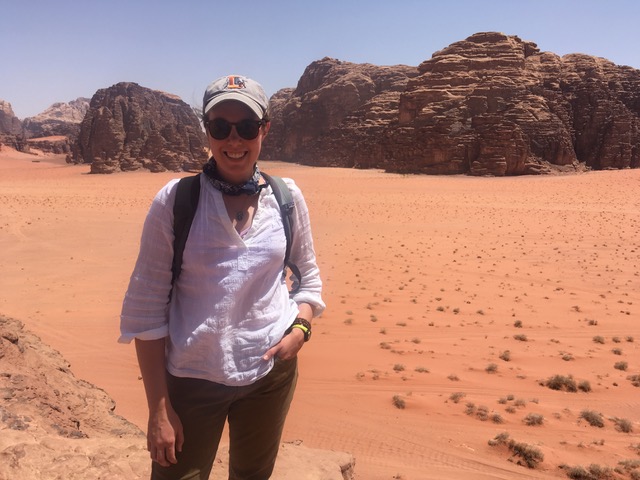
2020
The University of North Carolina at Chapel Hill
Jocelyn Burney will be using the Colburn Fellowship to support her dissertation work on “A Diaspora of Things: Building Jewish Communities in the Late Roman Aegean (2nd-6th centuries CE)”. Through an examination of case studies in the late Roman diaspora in Greece, the Aegean, and western Turkey, she is exploring the role of material culture in the construction of Jewish identity outside of Palestine. Her time at the ASCSA will allow her to study the financing, construction, and maintenance of synagogues and graves over generations, and examine the nature of Judaism in antiquity, and the role of “religious” practice as a vehicle for identity-maintenance in contexts of migration, travel, or diaspora.
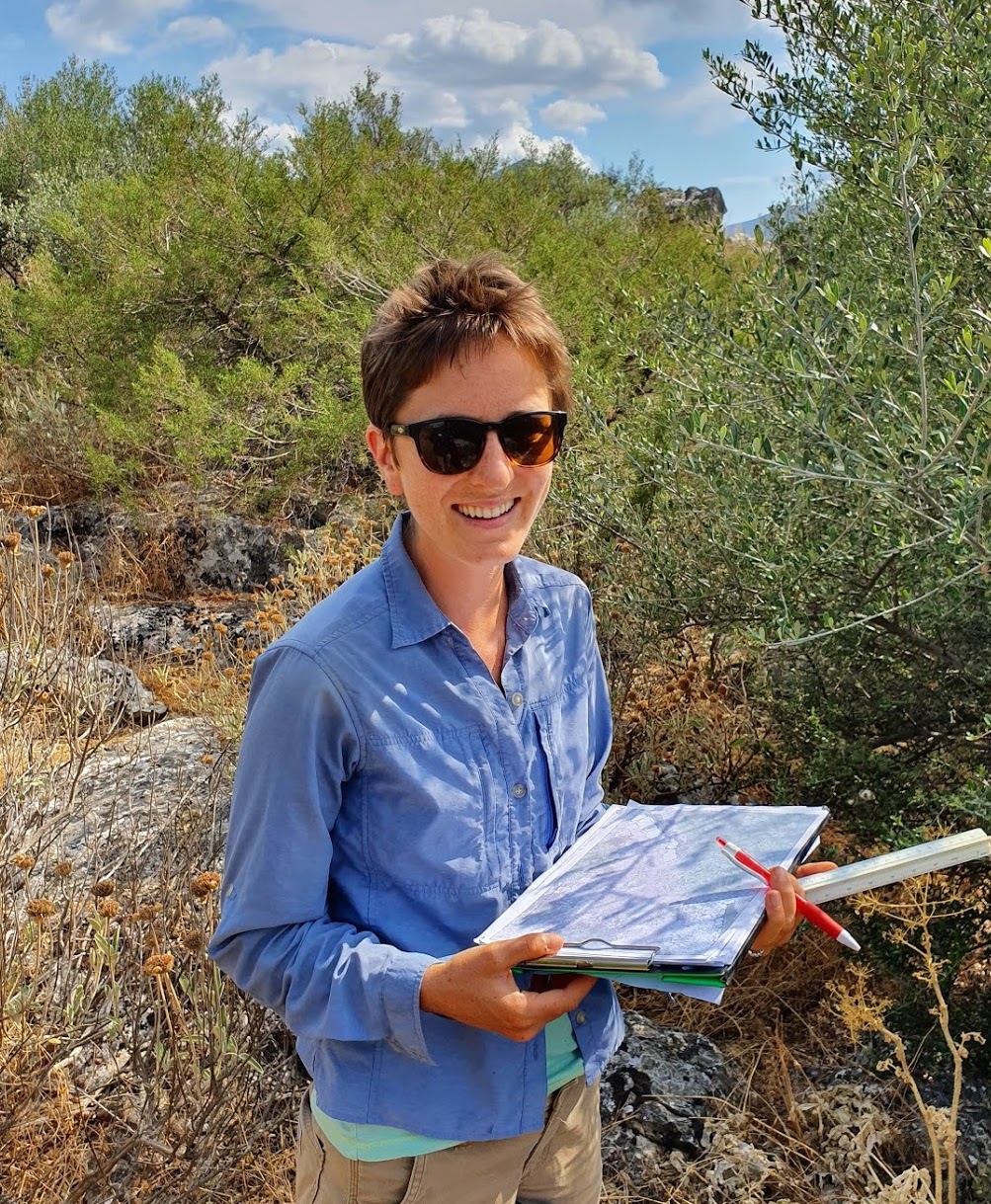
2020
Stanford University
Grace Erny has been awarded the Colburn Fellowship to further her work on her dissertation, “Landscapes of Inequality: Social Differentiation in Geometric through Classical Crete”. Her multiscalar investigation of inequality and social differentiation in Late Geometric through Classical Crete uses information from excavated Cretan houses as well as surface assemblages from across the island to study this period of profound social and political change. Besides work at the ASCSA’s Blegen Library, Ms. Erny will travel to Crete to re-study the material from the Vrokastro and Western Mesara Surveys and to visit small rural sites.
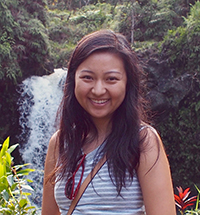
Emory University
Julianne Cheng is receiving the Colburn Fellowship in order to further her work on her dissertation, “Making the Ordered Cosmos: The Gigantomachy in Archaic and Classical Athenian Vase Painting”. She will be studying depictions of the Gigantomachy on Attic vases, from their emergence in 560 BC to their transformation around 450 BC, and with the support of the Colburn Fellowship will complete her field research on the substantial corpus of relevant vases that were found (and produced) in Athens, and explore their relationship to the sudden emergence of the Gigantomachy in architectural sculpture.
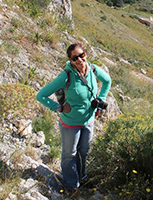
University of British Columbia
Chelsea Gardner will be working on “The CART-ography Project: Cataloguing Ancient Routes and Travels in the Mani Peninsula‚” a new, multi-disciplinary, Digital Humanities project that uses GIS-analysis to investigate routes of early travelers to Mani in order to better understand the value of these accounts in recreating the archaeological landscape. She will be studying and traveling in Greece, both within the Gennadius Library at the American School of Classical Studies at Athens, as well as in the field in the Mani peninsula. The ultimate goal of this project is to establish an open-access, online, navigable database that showcases all the available routes throughout Mani and the known archaeological sites from the prehistoric through early modern periods.
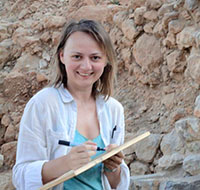
University of North Carolina, Chapel Hill
Spatial Narratives of Mortuary Landscapes in Early Iron Age Greece: A Network Approach
Cicek Beeby is a doctoral student at the University of North Carolina, Chapel Hill, exploring how communities and social groups interact with each other through the context of mortuary spaces in early Iron Age Greece. The Colburn Fellowship will support her project, using techniques from various disciplines including network theory, sociological and anthropological ideas about the use of space in various social groups, and GIS. Beeby’s research counters emerging theories about the marginalization of death and mortuary spaces during this period, and instead portrays mortuary contexts as expressions of connection to the wider community. Beeby will observe and track the changes in the use of mortuary spaces and relate these changes to broader changes in social and political formations.
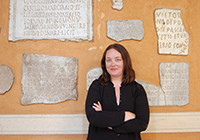
Princeton University
The Greek Dramatic Festivals under the Roman Empire
Mali Skotheim is a doctoral student with Princeton University. With support from the Colburn Fellowship she will investigate the social history of Greek theater under Roman rule from 100 BCE to 300 CE. By studying epigraphic evidence of Greek dramatic festivals, she will examine the links between the city, the display of the festivals, the organizers, the participants, and the attendees to give a more complete image of the Greek theater’s social history. The project will result in a holistic presentation of Greek theater, using the physical epigraphic evidence, the special relationships between the inscriptions and the city, and other archaeological evidence regarding the architecture of Roman period theater buildings. Skotheim will use the resources at the American School for Classical Studies in Athens, and will travel to various cities that held dramatic festivals, giving her a perspective that can only be gained by first-hand and in-person examinations of the inscriptions and sites under study.
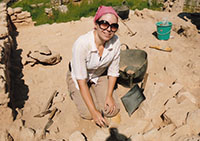
Brown University
Building up Byzantine Athens
Dr. Kondyli is a postdoctoral fellow at the Joukowsky Institute for Archaeology and the Ancient World at Brown University. Her project explores how different social groups participated in the transformation of Byzantine cities in the 7th through 15th centuries, and how these groups set the rules of urban living and negotiated their identities in an urban environment. Dr. Kondyli will use the Fellowship to further her work on the study and publication of the Byzantine settlement in the Athenian Agora, and conduct research on similar sites in the Byzantine administrative district such as the Corinth and Thebes. During her tenure at the American School of Classical Studies in Athens, she will conduct research at the Blegen and Gennadius libraries, examine the published and unpublished results from the Athenian metro excavations, continue her collaboration with the Excavation Directors at Thebes, and visit Corinth.
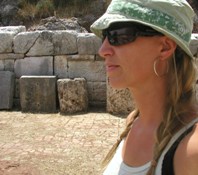
University of Minnesota
Bucolic Architecture: Hellenistic Pastoral Temples in the Peloponnese
Doctoral student Sara Franck will research sites in the Greek Peloponnese where pastoral and rural Hellenistic features have not been examined in light of their relationship to the building program of the Greek world. While there has often been a notion of “decline” associated with the Hellenistic period, Ms. Franck argues that the political, economic, and social climate created a longing for the past and a revival in rural-style temples. Many Hellenistic Peloponnesian examples have been overlooked by scholars in favor of larger, better-preserved and easily accessible sites. Ms. Franck’s innovative approach, using GIS software for data management and analysis, will seek relationships and patterns in Hellenistic pastoral structures and decorative characteristics that show a flow and exchange of architectural ideas indicative of a wider cultural awareness and attitude.
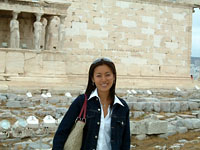
University of Cincinnati
Reflections of Society in Protopalatial and Neopalatial Cretan Jewelry
Yuki Furuya is researching Cretan jewelry, its iconographical parallels, and symbolism of the Protopalatial and Neopalatial periods of the Minoan civilization. Her data will be mapped regionally and diachronically to investigate the development and dissemination of religious and political powers during these periods. Yuki is hoping to place “faces” on these Minoan jewelry owners, as jewelry characteristically provides information specific to its wearer. The effort to place “faces” in Minoan civilization is still new because, traditionally, Minoan scholarship has discussed society on a larger scale.